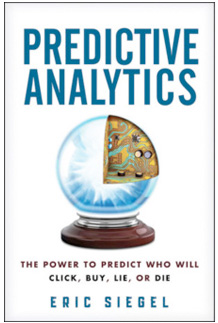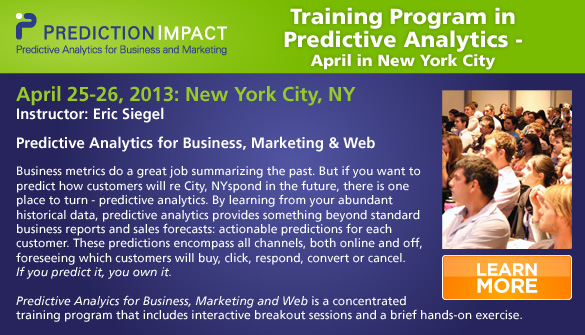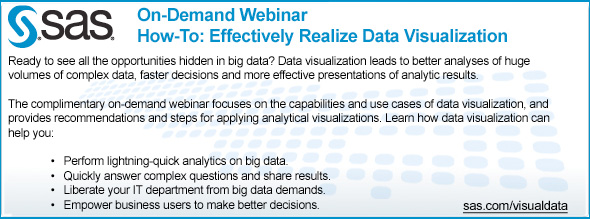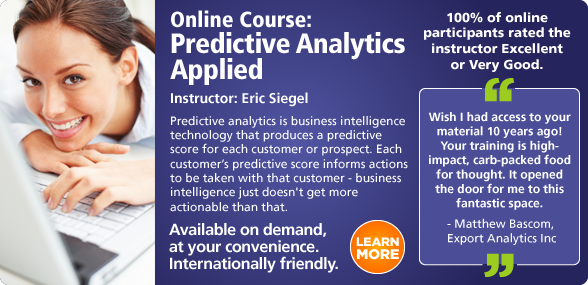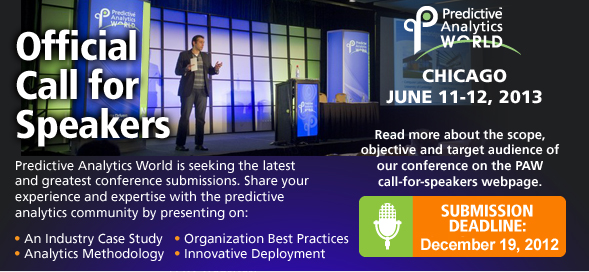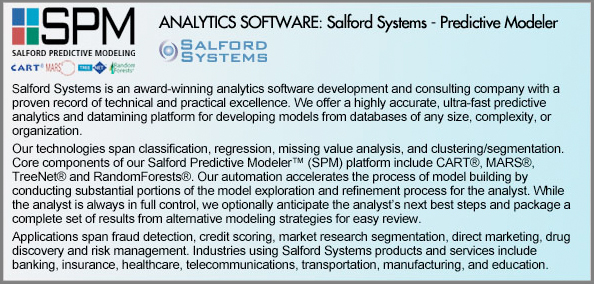There's a lighthearted TV show I like premised on this very theme, Psych, in which a sharp–eyed detective—a modern–day, data–driven Sherlock Holmesian hipster—has perfected the art of observation so masterfully, the cops believe his spot–on deductions must be an admission of guilt. The hero gets out of this pickle by conforming to the norm: he simply informs the police he is psychic, thereby managing to stay out of prison and continuing to fight crime. Comedy ensues.
I've experienced the same impulse, for example, when receiving the occasional friendly inquiry as to my astrological sign. But, instead of posing as a believer, I turn to humor: "I'm a Scorpio, and Scorpios don't believe in astrology."
The more common cocktail party interview asks what I do for a living. I brace myself for eyes glazing over as I carefully enunciate: predictive analytics.
Most people have the luxury of describing their job in a single word: doctor, lawyer, waiter, accountant, or actor. But, for me, describing this largely unknown field hijacks the conversation every time. Any attempt to be succinct falls flat:
I'm a business consultant in technology. They aren't satisfied and ask, "What kind of technology?"
I make computers predict what people will do. Bewilderment results, accompanied by complete disbelief and a little fear.
I make computers learn from data to predict individual human behavior. Bewilderment, plus nobody wants to talk about data at a party.
I analyze data to find patterns. Eyes glaze over even more; awkward pauses sink amid a sea of abstraction.
I help marketers target which customers will buy or cancel. They sort of get it, but this wildly undersells and pigeonholes the field.
I predict customer behavior, like when Target famously predicted whether you are pregnant. Moonwalking ensues.
So I wrote this book to demonstrate for you why predictive analytics is intuitive, powerful, and awe-inspiring.
I have good news: a little prediction goes a long way. I call this The Prediction Effect, a theme that runs throughout the book. The potency of prediction is pronounced–as long as the predictions are better than guessing. This Effect renders predictive analytics believable. We don't have to do the impossible and attain true clairvoyance. The story is exciting yet credible: putting odds on the future to lift the fog just a bit off our hazy view of tomorrow means pay dirt. In this way predictive analytics combats financial risk, fortifies healthcare, reduces spam, toughens crime fighting, and boosts sales.
continued >>>
 Adam Kahn
Adam Kahn






